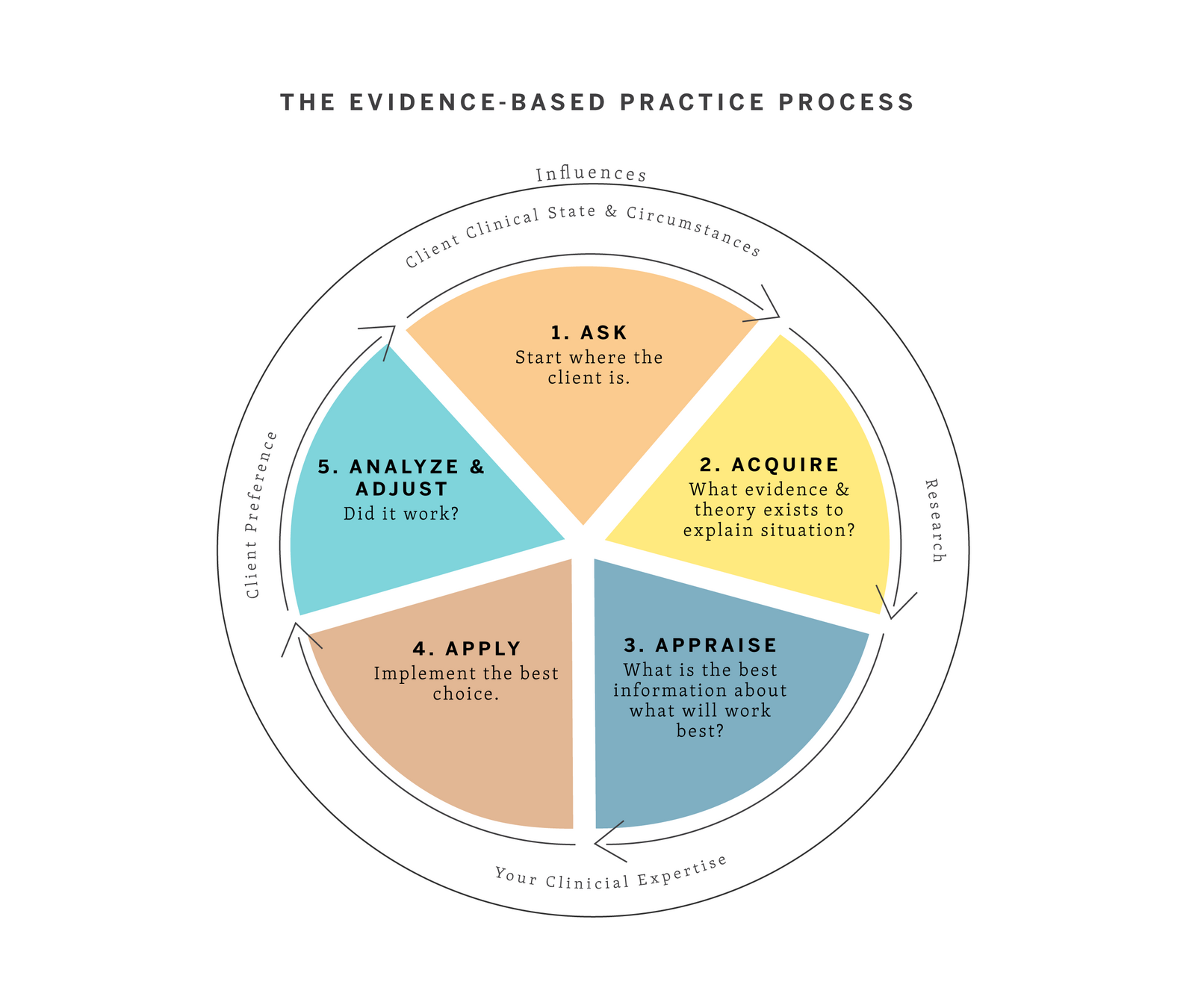Contact ET @ etorres@hpu.edu

source: The University of Texas at Austin
Evidence-Based Practice Steps:
- ASK - Convert the need for information into a focused question. Consider using the Client Oriented Practical Evidence Search (COPES) framework to develop your question and create potential key terms to search with.
- ACQUIRE - Track down the best evidence with which to answer that question. Search in multiple databases objectively and effectively.
- APPRAISE - Critically appraise the evidence for its validity, impact, and applicability. Keep track of the literature and also appraise and revise your search strategy.
ASK: Client Oriented Practical Evidence Search (COPES)
COPES stands for Client-Oriented Practical Evidence Search. The acronym comes from a the description of the process. COPES questions originate in daily practice. The client in this question can be an individual, or a group.
- Client Oriented - Questions from daily practice, posed by practitioners, focused to client's welfare
- Practical -Concern problems that arise frequently -Concern agency mission - Knowing answer could impact decision
- Search Oriented - Specific enough to guide electronic evidence search
5 General Types of COPES Questions
- Assessment question – Does a specific client system demonstrate an identified problem or strength? / Has a specific intervention been able to achieve the desired outcomes?
- Description question – What are my clients experiences in a given situation? (Involves techniques such as client surveys and observation by practitioners)
- Effectiveness question – How effective is an intervention in treating your clients?
- Prevention question – How effective is an intervention in helping your clients to avoid a problem?
- Risk question – What is the probability of a specific outcome or consequence in given situation?

ASK: Client Oriented Practical Evidence Search (COPES)
Identify Main Concepts of Your Research Topic
| Dementia | Reality Orientation | Validation Therapy | Improve Family Care |
|---|---|---|---|
| Alzheimer's | ROT | Patient Control | Reduce Stress |
| Senile Dementia | Patient Education | Redirection Techniques | Quality of Life |
| Senile | Positive Effect in Behavior |
After deciding on your topic and setting up a research question or hypothesis. What are the main concepts or variables that you want to focus and what alternative words and terminology can be used to describe them?
Main Concepts:
What would be a better for family providers/caregivers dealing with elder dementia, reality orientation therapy or validation therapy?
Example:
Research Tip: Keep a list of possible words to search & track what terms work and don't work.
Alternative Terms:
Client/Problem
Action/Solution
Alternative
Goal/Outcome


COPES Search Strategy Activity
ACQUIRE: Find the Best Evidence and Search Multiple Databases


Common Search Commands

OR
OR
OR
OR

Advanced Search
APPRAISE : Critically Appraise the Evidence

When browsing results, read the abstracts of articles to make a more informed decision about the article's potential. Don't judge an article by title only.
Filter Results by Type of Evidence

Filter Results by Type of Evidence

Find Full-Text and Critically Analyze Article


If No Full-Text Request Interlibrary Loan


If No Full- Text Request Interlibrary Loan

Keep Track of Your Research

ORGANIZE YOUR RESEARCH
Zotero exports citation information from any database by using a plugin within your favorite Internet browser.
Maintain your citations organized in your personalized database and create references much easier.

https://hpu.libguides.com/zotero
Learn
More
etorres@hpu.edu
Set Up a Research Consultation
or Ask a Librarian 24/7 Chat
CONTACT US
